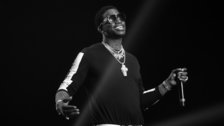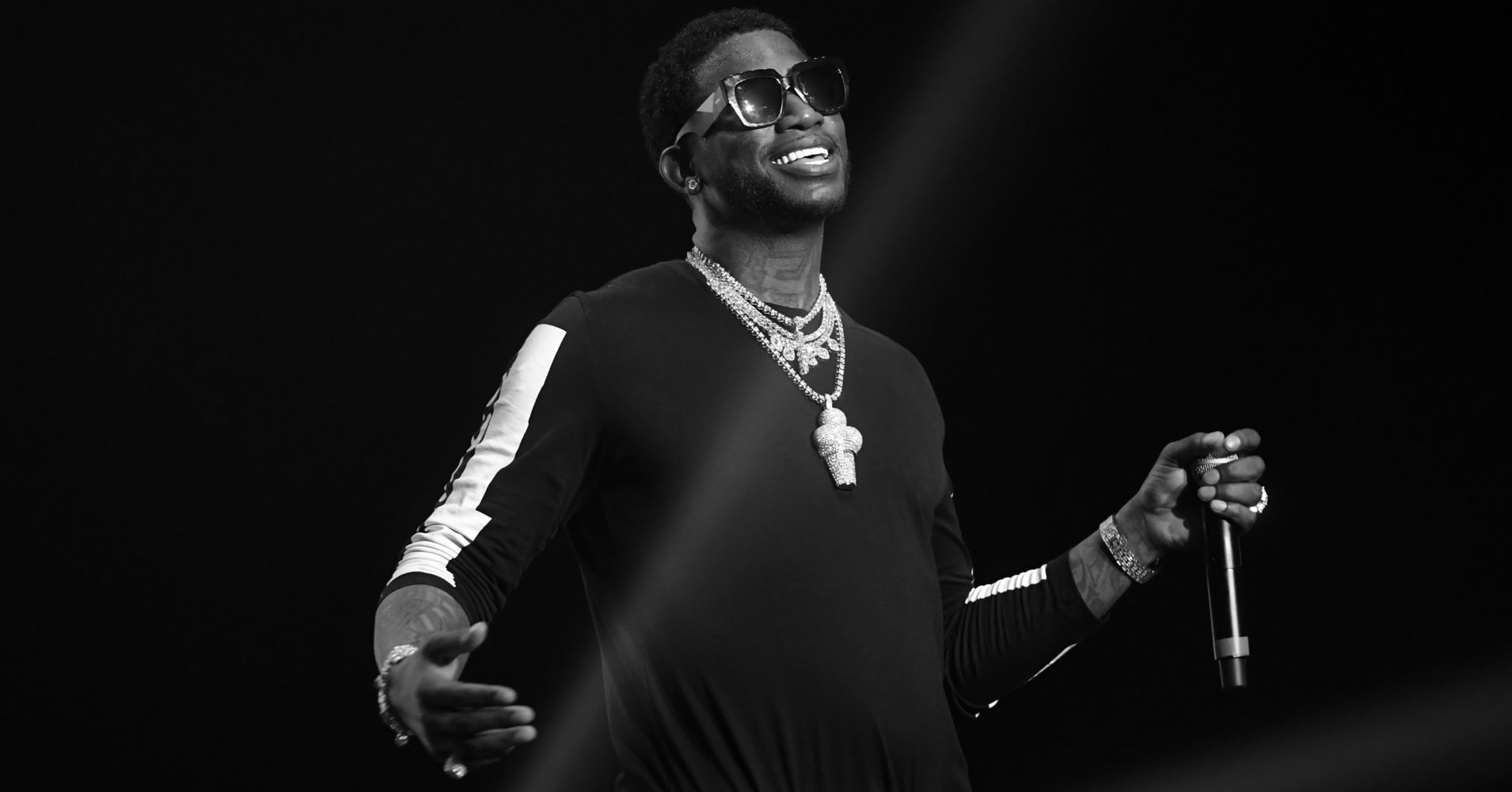[ad_1]

There isn’t much on this earth that gives me more joy than Gucci Mane’s Instagram. His feed boosts my credit score. It clears my skin. It cures my seasonal allergies.
Just look at him, taking out the trash and catching the fuck out of that natural sunlight:
This is a portrait of glow-up. The photo is freedom itself. Open fields. Untrammeled sky. Responsible personal ecology. It’s a Wendell Berry poem set to a trap beat. Even the prison industrial complex couldn’t break La Flare.
Captured mid-epiphany, Gucci looks like someone who has recently crawled out of a hole. And in a way, he has.
On May 26, 2016, Gucci, having served three years in an Indiana federal penitentiary for illegally possessing a firearm, wasn’t so much released from prison as propelled by some new spiritual momentum. The rapper walked out drug-free, 50 pounds lighter — all muscle where the weed and the pints of lean had made him soft ― with his signature mouth full of golds replaced by an invigoratingly bright white smile.
The change was so radical that someone floated a conspiracy theory claiming he was a government clone. But his transformation was real, as evinced by an incredibly honest autobiography discussing his drug addiction and his desire to be seen for who he is and not for the ominous reputation he’d built while recording the most gutta trap music ever created and nurturing a slew of our favorite trap rappers along the way.
Separating himself from this reputation hasn’t been easy. In a December 2016 interview with “The Breakfast Club,” Gucci fidgeted in his seat as the hosts invoked an interview from three years prior in which they were all terrified of him.
It’s easy to see why people would be scared of Gucci. At one point, he leaned into the fact that while many rappers spit about committing unthinkable acts of violence, seldom have they done it. But he has.
In his book, The Autobiography of Gucci Mane, Gucci lays bare his frustration with trying to convince people that he wasn’t a villain. In fact, he writes, this is what drove him to embrace the menace. He also exposes us to his hangups and blind spots and misogyny. The Gucci of the autobiography is by no means perfect. For instance, he is grouchily unreconciled to parts of his past, most notably an incident in 2011 in which he pushed a woman out of a car for not wanting to sleep with him. But it is hard not to feel generous toward him, flaws and all. Gucci is frank about being a man who is still in progress.
That’s what I love about his Instagram. It’s a gallery dedicated to his success and his love of short sets and sweatsuits. The photos of the cars and the ice and his general wealth don’t give off an air of superiority. They show Gucci celebrating the fruit of his labor. His Instagram is a carefully curated ode to evolution, progress, love of others and love of self. Everything in it feels earned.
Did y’all see that video Tracee Ellis Ross posted of him in Iceland?!
Or when he draped himself in a floral short set?
Or his wedding with Keyshia Ka’oir?
Or when someone had him fucked up at the gas station?
We also get glimpses of past, pivotal moments in his career:
The man we see before us now is reclaiming his legacy and encouraging others to be better than he was. His acronymic nickname, Guwop, used to stand for “Get, Ur, Weight, Up, Pussy,” a little bafflingly. Now he says it means “God Unity Wisdom Opportunity Power.” It’s the same generally banal message of self-empowerment, but now the typo is fixed and the scolding note of the former has become the gentle motivational-poster wisdom of the latter.
That’s the Gucci story writ small: same man, but warmer. He is proof that you can have joy on your own terms. You can glow up.
“If Guwop can change for the better anybody can!” he wrote on an Instagram post explaining that he spent more than five years of his career incarcerated. “Don’t Give Up! Never give up!”
We won’t give up, Guwop. We won’t. 1017 forever.
[ad_2]
Source link

